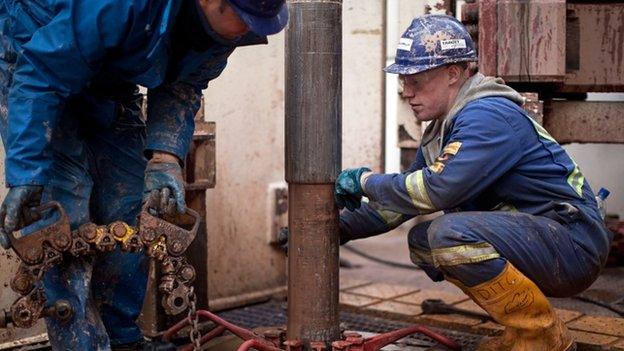Scottish government to make fracking decision in 2017
- Published
Minister Paul Wheelhouse details economic report on fracking
The Scottish government hopes to make a decision on whether to allow fracking in the second half of 2017.
The government is mulling over whether to allow the controversial oil and gas extraction technique in Scotland, with a moratorium currently in force.
Energy Minister Paul Wheelhouse told MSPs that a "precautionary, evidence-based approach" would continue.
A public consultation based on newly published studies will be launched in January, before any decision is made.
At the same time, the government will publish its climate change plan and commission a full strategic environmental assessment.
Nicola Sturgeon's government commissioned a series of independent research projects when it imposed a moratorium on fracking in January 2015, the conclusions of which have now been published.
Unconventional oil and gas (UOG) extraction has proved a controversial topic, with some political parties and green groups arguing it causes environmental damage, while others point to economic benefits.
Holyrood voted to support an outright ban on fracking in June, although SNP members abstained from that vote, and Labour has launched a members bill with the same aim.
But Mr Wheelhouse said the government would not be "gung-ho" and had committed to consulting on the evidence collected.
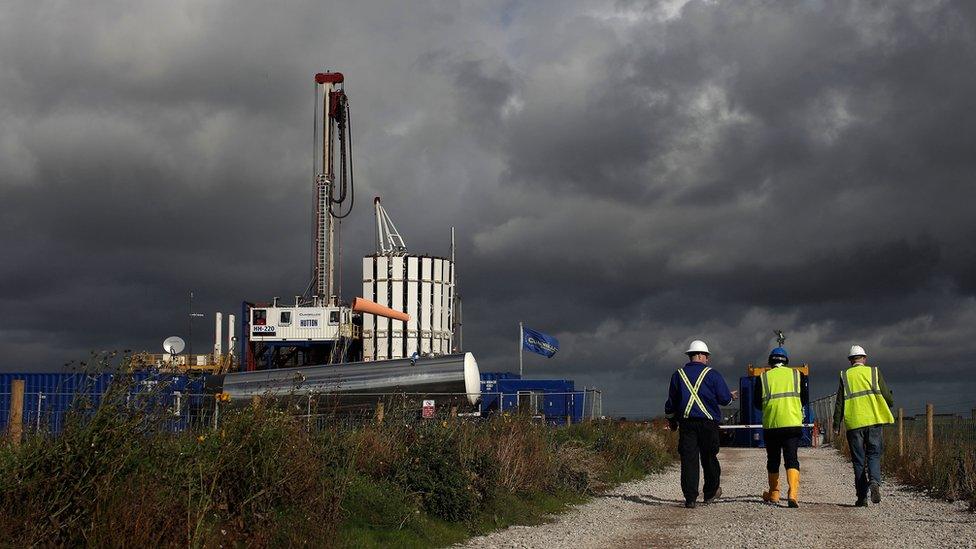
The studies into the potential impact of fracking were commissioned in 2015
He said: "The extensive package of research published today will ensure the public has access to a comprehensive evidence base on the potential health, economic and environment impacts of UOG ahead of the launch of the Scottish government's public consultation in the early New Year.
"These studies are an important contribution to the examination of the potential impacts of unconventional oil and gas technologies and underline the Scottish government's precautionary, robust and evidence-based approach to UOG."
Mr Wheelhouse was pressed by Conservative MSPs on the timescale for a decision, with claims the government was "incapable of making a tough decision".
The minister said there would be a four-month consultation period starting in January and hoped to have the process complete in the second half of 2017.
Pressed further by Willie Rennie, Mr Wheelhouse said there would be a parliamentary vote on the matter.
He anticipated a "lively debate" and added: "I will intend to do that by the end of 2017."
'Inadequate' evidence
The research published included a public health impact assessment, external, although Health Protection Scotland concluded that "the evidence considered was inadequate as a basis to determine whether development of shale oil and gas or coal bed methane would pose a risk to public health".
As well as the health study, five commissioned research projects were published, on the topics of:
The reports found that there would be an increase in traffic for a number of years due to industrial activity were fracking permitted, but that the probability of "felt earthquakes" was "very small".
The economic report laid out a series of different scenarios, with anything from 470 to 3,100 jobs potentially created, and value added to the Scottish economy to 2062 anywhere from £100m to £4.6bn.
Labour's Jackie Baillie questioned whether these "relatively low" figures were worth a risk to the environment. Mr Wheelhouse said he wanted to take a "rounded view" and "let the people tell us what they think is more important".
Shale gas is currently shipped to Scotland from the US for use at the Ineos petrochemical plant in Grangemouth.
The firm's chairman Jim Ratcliffe has claimed fracking could transform the UK's industrial heartlands.

It's now over to you - the public
Analysis by BBC Scotland politics reporter Philip Sim

There are precious few bombshells in the fracking reports released today.
They found "inadequate" evidence to draw a firm conclusion on health impacts, while the economic impact could apparently land anywhere in an enormous window from £100m to £4.6bn.
Both sides will find things to claim as a win among the stack of documents and labyrinths of small-print.
Pro-frackers can point to the sunnier economic forecasts, and the "very small" risk of earthquakes; meanwhile anti-fracking groups have already pounced on lines about increasing difficulty hitting climate targets and the gloomier economic projections.
With such a selection-pack of fudge on offer, it's hardly surprising the government remain firmly on the fence.
This is another step down the road, though. The government hope to come to a conclusion on fracking by the end of 2017, but want to hear from you, the public, first.
Expect the public consultation input from all sides to be composed in infinitely stronger terms than today's study reports.

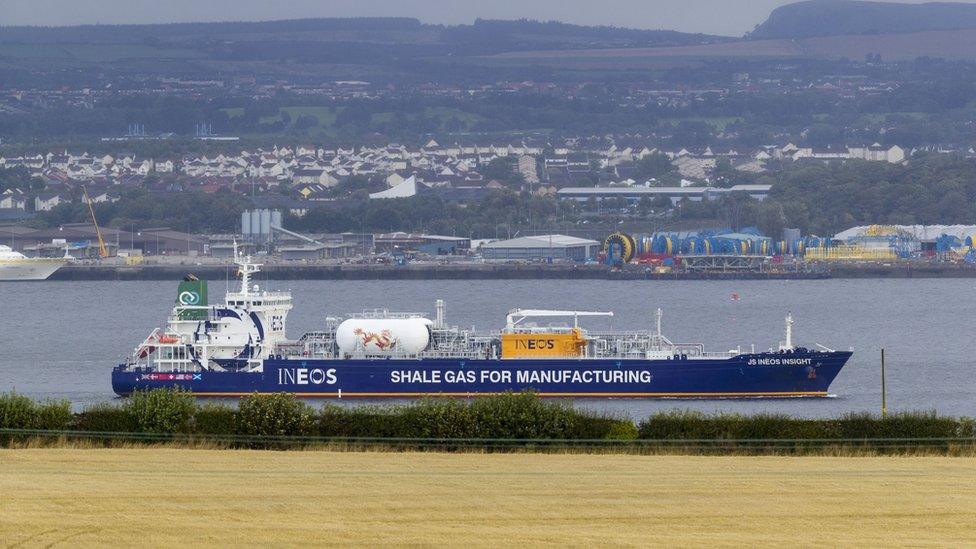
The first shipment of shale gas from the US arrived at Grangemouth in September
Friends of the Earth Scotland said the research had delivered a "damning verdict" on fracking.
Head of campaigns Mary Church said: "The economic case for pursuing an unconventional gas industry in Scotland simply doesn't stand up, while the risks of doing so could be utterly devastating for communities and the environment. No state has had a moratorium on fracking, looked at the evidence and decided it's a good idea."
WWF Scotland director Lang Banks added: "Looking at the three tests posed by the government's own independent climate watchdog, it's very hard to see how Scotland could go ahead with fracking without breaching its carbon targets.
"According to the independent research, the direct emissions from the production process of an unregulated fracking industry alone could potentially add more than 10 per cent to our current annual climate emissions. And that's before you consider the climate science, namely that the vast majority of known global fossil fuel reserves need to be left in the ground."
'Dithering and delay'
Labour and the Scottish Greens have set themselves in opposition to fracking, and the Lib Dems support a ban despite their conference calling for current restrictions to be lifted.
The Scottish Conservatives have spoken in favour of fracking in the Holyrood chamber, while other groups, including trade unions, have also voiced support.
Tory energy spokesman Alexander Burnett said: "We have more dithering and delay and a failure to recognise an opportunity to boost the economy and create jobs at a time when the North Sea oil and gas industry is in decline.
"Ministers already commissioned expert scientific advice, which found that fracking can take place safely provided the right regulatory regime is in place. However, they chose to ignore that for political reasons. Today we have yet more evidence, but this government seems incapable of making a tough decision."
Labour's Claudia Beamish said ministers "had an opportunity to ban fracking, but look set to kick it into the long grass", asking why the SNP were "dragging their heels on a decision".

What is fracking and why is it controversial?
The BBC's David Shukman explains how fracking works
Fracking is the process of drilling down into the earth before a high-pressure water mixture is directed at the rock to release the gas inside.
The extensive use of fracking in the US, where it has revolutionised the energy industry, has prompted environmental concerns.
The first is that fracking uses huge amounts of water that must be transported to the fracking site, at significant environmental cost.
The second is the worry that potentially carcinogenic chemicals used may escape and contaminate groundwater around the fracking site.
But the industry suggests fracking of shale gas could contribute significantly to the UK's future energy needs
- Published8 November 2016
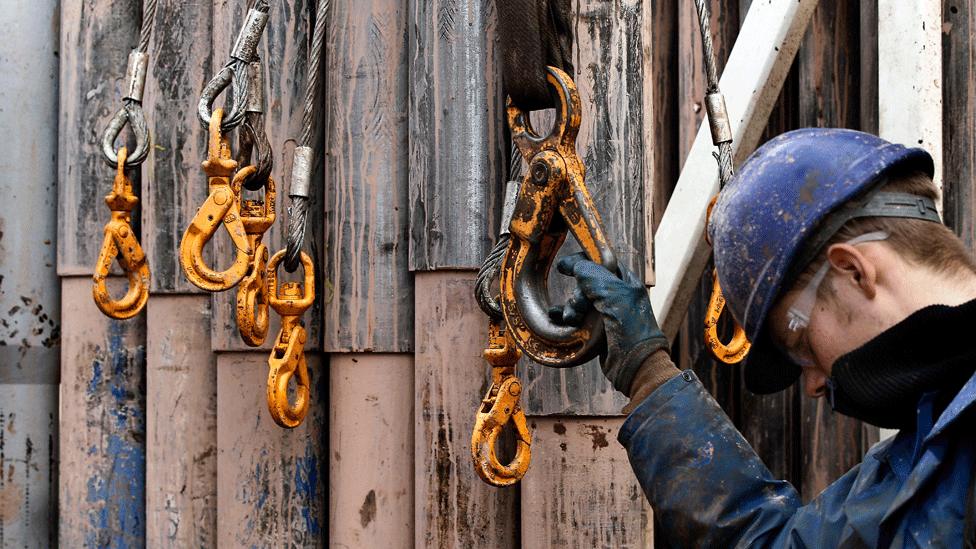
- Published4 November 2016
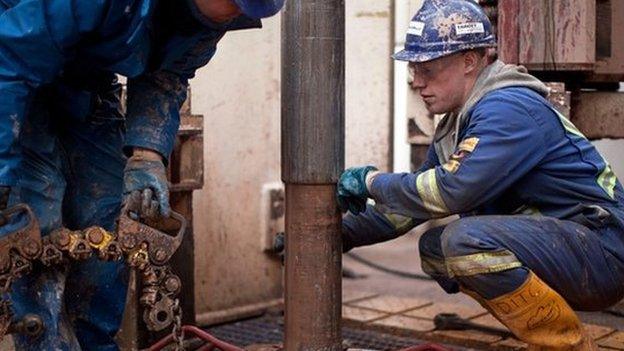
- Published1 June 2016
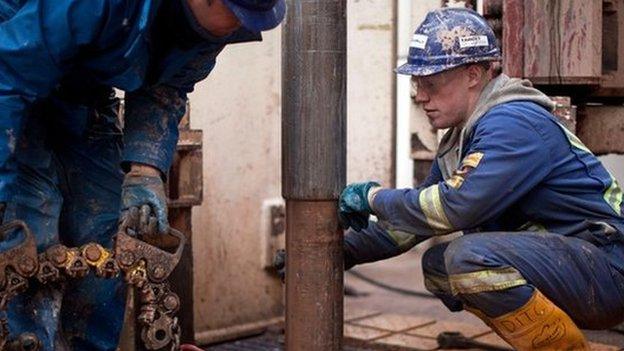
- Published11 March 2016
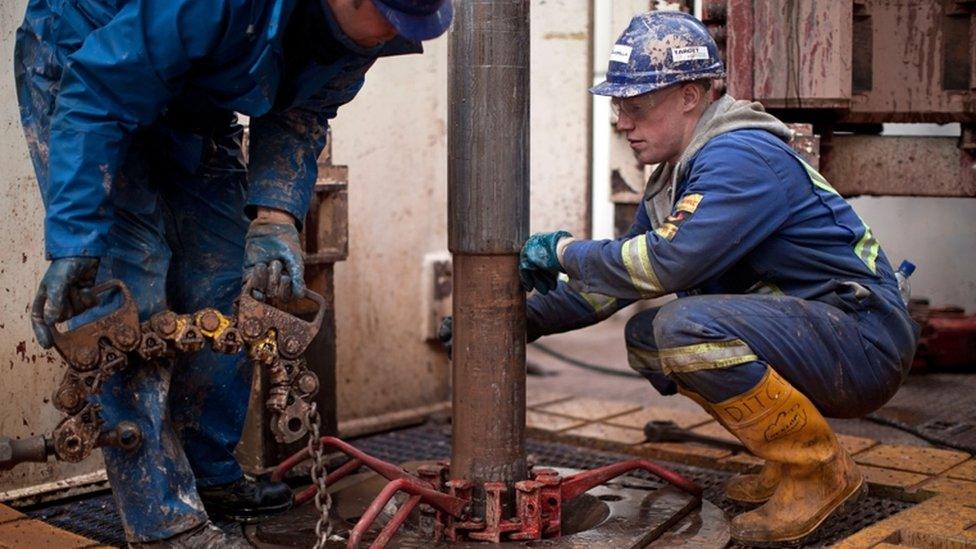
- Published28 January 2015
